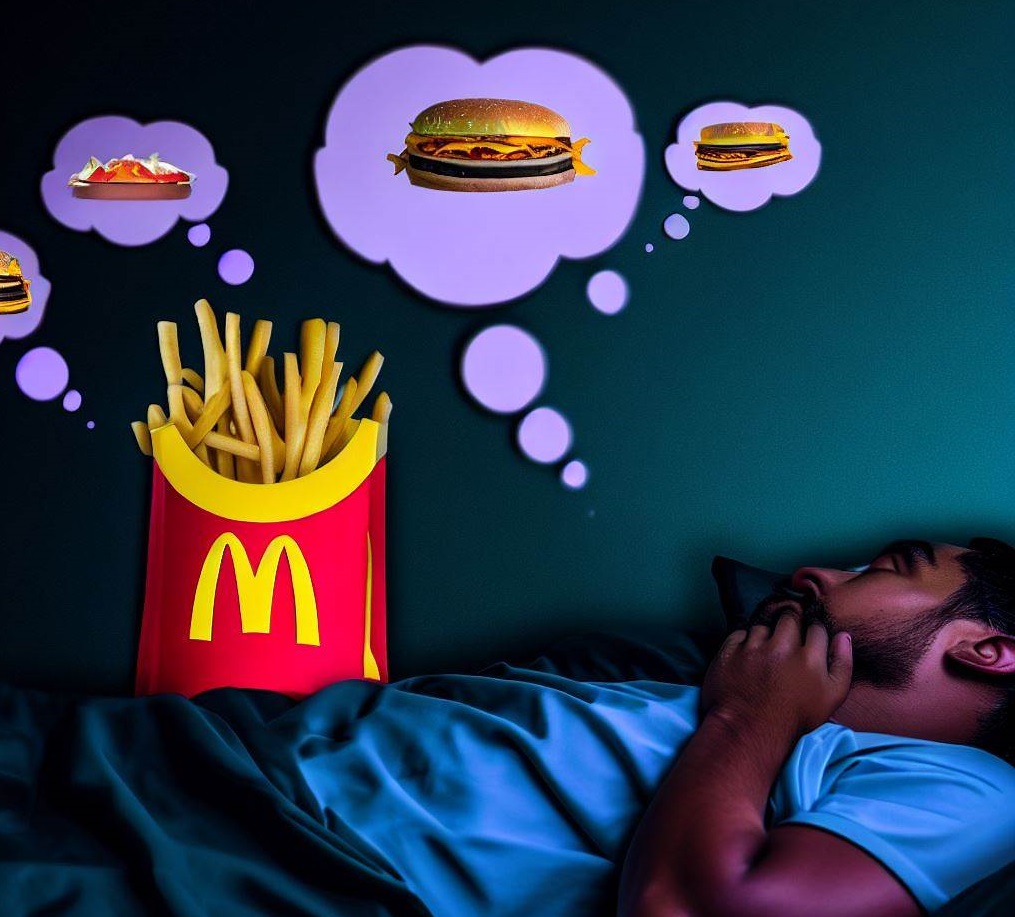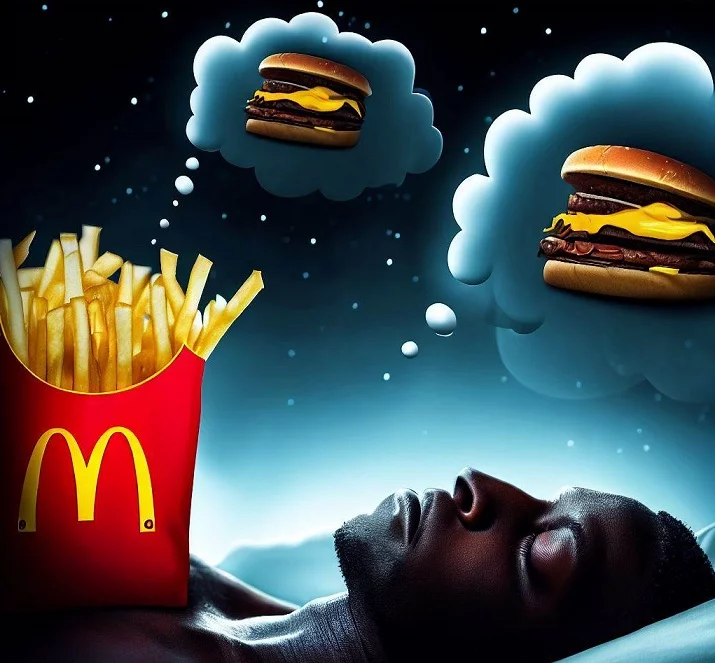Details Behind Alleged Tech McDonald’s Will Use to Push Ads into Your Dreams During REM Sleep Cycle
McDonald’s, the world’s largest fast food chain, is reportedly working on a new technology that will allow it to push ads into your dreams during REM sleep, the stage of sleep when most vivid dreaming occurs, according to a viral rumor. The alleged science behind how this technology might work is even more creepy than it sounds.
How Does the Alleged Technology that McDonald’s Will Use to Push Ads into Your Dreams During REM Sleep Cycle Work?
According to sources, McDonald’s is developing a device that will emit sounds and smells that are associated with its products, such as the sizzling of burgers, the crunching of fries, and the aroma of coffee. The device will be activated by a smartphone app that will detect when the user is in REM sleep, using sensors that monitor brain waves, eye movements, and heart rate.
The idea is that the sounds and smells will influence the content of the user’s dreams, making them more likely to dream about McDonald’s food and beverages. The device will also allegedly record the user’s dreams, and send them to McDonald’s for analysis and feedback. Essentially they would theoretically be able to know what type of dream you had about their product.

The rumors allege that McDonald’s hopes that by implanting its brand into the user’s subconscious, it will increase their loyalty, preference, and consumption of its products. It also alleged they believe the device will enhance the quality of the user’s sleep and dreams, making them more pleasant and refreshing.
Is it Legal and Ethical?
McDonald’s has not officially announced or confirmed its plans to launch the dream ads technology, but some experts and critics have already raised concerns about its legality and ethics.
One of the main issues is whether the device will violate the user’s privacy and consent. Will the user be fully informed and aware of what the device is doing to their brain and mind? Will they be able to opt out or control the frequency and intensity of the ads? Will they be able to access and delete their dream data?
Another issue is whether the device will have any negative effects on the user’s health and well-being. Will the device interfere with the natural function and purpose of REM sleep, which is essential for memory consolidation, emotional regulation, and creativity? Will the device cause any adverse reactions or side effects, such as headaches, insomnia, nightmares, or addiction?
A third issue is whether the device will have any social and cultural implications. Will the device create a new form of inequality and discrimination, where only those who can afford or access the device will benefit from its advantages? Will the device erode the diversity and authenticity of human dreams, replacing them with standardized and commercialized images?

What Do People Think of the Alleged McDonald’s REM Sleep Ad Technology?
The reaction to the rumors of McDonald’s dream ads technology has been mixed. Some people have expressed curiosity and interest in trying it out, while others have expressed disgust and outrage at the idea of having their dreams invaded and manipulated by a corporation.
Some people have compared McDonald’s dream ads to other forms of advertising that use subliminal messages or neuromarketing techniques to influence consumer behavior. They argue that these methods are not new or unique, and that they are not necessarily harmful or unethical if they are done with transparency and respect.
Other people have compared McDonald’s dream ads to dystopian scenarios from science fiction novels or movies, such as “Inception”, “The Matrix”, or “Black Mirror”. They argue that these methods are invasive and dangerous, and that they pose a threat to human dignity and freedom.
How would you feel if you woke up in the morning, and the only thing you could remember dreaming about was a McDonald’s Happy Meal? At the very least that would be better than having a nightmare right?
Explore Related Articles

Viral Video Shows Cockpit Pilot’s View Inside of Plane as it...
Plane crashes are something most people never witness in person. Even more rare is witnessing the view the pilot has the plane is going down. A recent viral video gave the world that view, and it was truly scary to witness.
Video Shows Cockpit Pilot's View of Plane Crashing in...
Police Release Photo and Name of Alleged Stalker Man Who Murdered...
Police have released the photo and name of the man accused of murdering Mercedes Morr, and it appears to be a case of murder suicide. When news that Instagram model Mercedes Morr was dead broke yesterday, there were no confirmed reports about how she died, causing so many rumors...
Joe Mixon’s Sister Shelonda Reacts to Shooting After Police Put Crime...
On Tuesday morning, police responded to a call for shots fired at the home of Cincinnati Bengals running back Joe Mixon in West Chester Township, Ohio. According to reports, one person was taken to the hospital with a gunshot wound to the leg, and an active investigation is underway.
Police...






